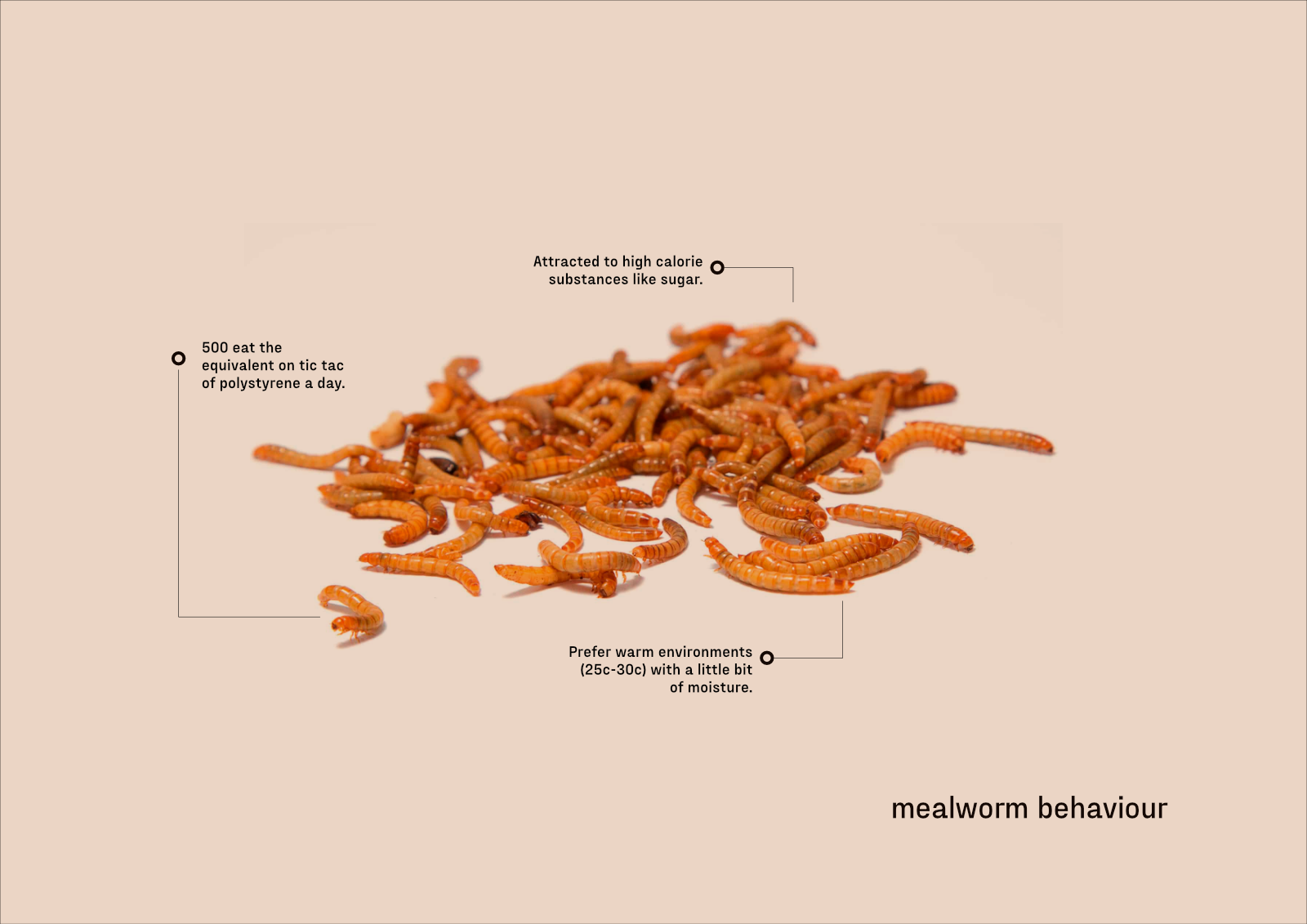William Eliot is a designer and artist dedicated to clearing a path from the anthropocene to the symbiocene. Eliot’s practice merges the realms of art, science, and nature, bridging the gaps between these disciplines to create harmonious and regenerative design solutions. His work has been showcased by Sky News, World Economic Forum and The Times and has been awarded several accolades which include the James Dyson Award, the Helen Hamlyn Centre for Inclusive Design Awards, and support from Arts Council England.
Eliot’s work revolves around harnessing the remarkable ability of mealworms to digest polystyrene safely, leading to creative collaborations where these non-human organisms play a pivotal role in furniture design. Through this push/pull interspecies design process, Eliot defines a novel framework that operates as a template for other designers to follow within the regenerative space.
In addition to this work, Eliot aims to make us reevaluate our age-old perceptions of timber by reframing it as a smart material – done by leveraging how wood warps when exposed to moisture. This unique quality provides the foundation for a fresh paradigm in design, as Eliot explores the possibilities of hygromorphic actuation, which he articulates as a “new material language.” This is embodied in a library of mechanisms and components with widespread potential for passively powered applications, from smart ventilation to rewilding.
Drawing from his Japanese and British heritage, Eliot imparts deep respect as a cornerstone of his design philosophy, emphasising the importance of honouring the origins of materials and the ecosystems from the contexts of his design interventions. Rather than exerting dominance as a designer, he establishes organisms and materials as collaborative partners, aspiring to shift our perspective from exploiting resources to harmoniously coexisting within a shared ecosystem as designers and individuals.
